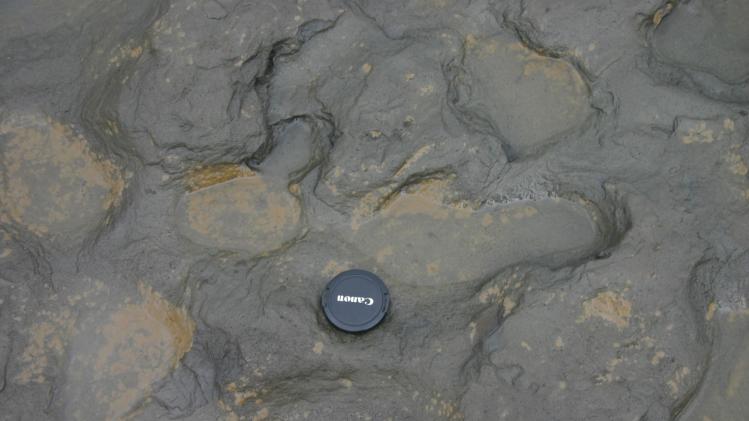
Scientists have discovered human footprints in England that are at least 800,000 years old.These footprints have been discovered when heavy seas washed sand off a beach in Happisburgh, Norfolk.
The footprints were discovered by a team of the British Museum, the Natural History Museum and Queen Mary University of London.
British Museum archaeologist Dr. Nick Ashton said published in the journal PLOS ONE "a tangible link to our earliest human relatives."
There are five different types of footprints.The footprints indicating adults, males and children walked through the beach.They are the earliest evidence of human ancestors and belong to first ever Britains.
The scientists and researchers believe the human who left the prints may have been related to ancestor known as Homo antecessor, or "Pioneer Man".
Natural History Museum archaeologist Chris Stringer said that 800,000 or 900,000 years ago Britain was "the edge of the inhabited world."
There are three sites in the world where older footprints found, 3.5 million years old in Tanzania and 1.5 million years old in Kenya, which are in Africa.
Isabelle De Groote, a specialist in ancient human remains at Liverpool John Moores University who worked on the find, said that "These individuals traveling together, may be that they were somehow related," and also said about the pattern of the prints.
The footprint will be a part of an exhibition, "Britain: One Million Years of the Human Story," open at the Natural History Museum on 13 February.

Share this on your favourite network















0 comments:
Post a Comment